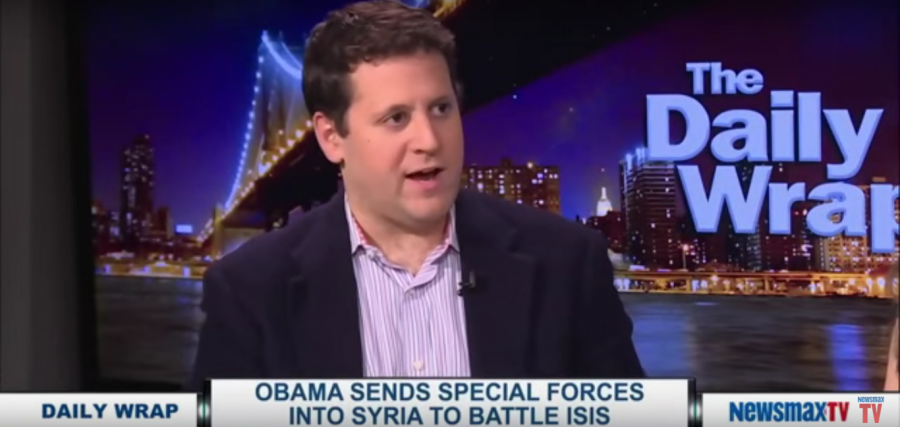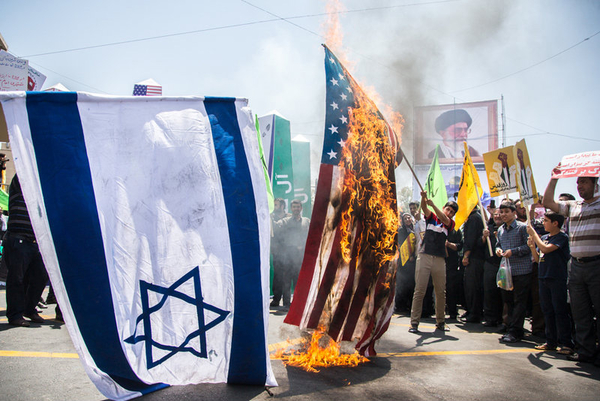The White House’s “Countering Violent Extremism” summit is barely underway, yet the message is already clear: the conference is politically correct — and far worse — a charade.
And that is a charitable interpretation.
Its sponsors are engaging in intentional obfuscation (e.g., saying “violent extremism” is the enemy), as well as peddling ineffective and ill-considered policy proposals (more community “empowerment”). The conference will effectively aid and abet America’s increasingly ascendant jihadist foes.
Reviewing the Obama administration’s summit preview, here are its 10 most disturbing aspects:
1. Contrary to its big government ethos, the Obama administration asserts that national security should be driven by the people, not the state.

(Image source: BuzzFeed)
According to the White House preview [emphasis mine]:
Really at the core of our approach is that the government does not have all the answers in combatting violent extremism. It is, at its core, a bottom-up approach. It puts communities with civic leaders, with religious authorities, with community power brokers, teachers, health providers, et cetera, in the driver’s seat. They know their citizens best. They are the first line of defense to prevent or counter radicalizing forces that can ultimately lead to violence. And so our approach is to really embrace and empower what local communities can do. So we’ve been working with our federal partners and our local partners to put in place this approach over the past couple of years.
Further:
Again, this is not about government, especially the federal government. The federal government doesn’t have all the answers. This is about building a comprehensive network to fight back against violent extremism. And we are explicitly recognizing the role that civil society plays, the private sector plays, and that families, et cetera, can play in countering violent extremism.
Who knew the Obama administration had so much respect for and faith in civil society?
Yet of course, this faith turns out to be dangerously misplaced as…
2. The groups the president wants to empower are those who may pose the biggest threat.
As Patrick Poole noted in an extensive report for TheBlaze:
In December 2011, the White House issued the “Strategic Implementation Plan for Empowering Local Partners to Prevent Violent Extremism in the United States” – the local partners, of course, being Islamic organizations, including those cited by the Justice Department as working to aid foreign terrorist organizations. All national security and law enforcement agencies on the federal, state and local level would now have to consult these groups and rely on “local partners” as a matter of policy. And as made clear in Salam al-Marayati’s Los Angeles Times op-ed, Islamic groups complaining about counter-terrorism policies or training would disrupt government efforts to “counter violent extremism” gave them an implicit veto over counter-terrorism policies. [Los Angels Times link added for context]
Why should we care about this 2011 report?
A senior Obama administration official noted in previewing the summit that the report details the very efforts the administration will be hawking during the three-day event.
Local partners such as the Council on American-Islam Relations — an unindicted co-conspirator in the largest Hamas funding trial in history — has advised members of the Muslim community not to work with the FBI, and religious leaders to lawyer up as opposed to working together with law enforcement when it comes to potential jihadists. On the eve of the summit, CAIR is reportedly calling for the Department of Justice to “protect those who act in good faith to prevent violent extremism by engaging with [Muslims] considering it in order to dissuade them.”
A partner of perhaps higher standing is the Islamic Society of Boston (ISB), a group linked to numerous jihadis and jihadi-sympathizers, that is reportedly the primary liaison between the Muslim community and law enforcement in countering violent extremism. The Boston program will be one of the three held up as a success story during the summit, despite the ISB’s Islamic supremacist efforts.
Looking to the heart of Muslim communities, according to the Mapping Sharia project, imams in over 80 percent of 100 randomly surveyed representative mosques in America recommended the study of violence-positive texts. The correlations with these texts are disturbing, as illustrated below:

(Image Source: Sharia Adherence Mosque Survey: Correlations between Sharia Adherence and Violent Dogma in U.S. Mosques)
In Pew’s extensive 2011 report on Muslims in America, 21 percent of those polled indicated there was a great deal or fair amount of “support for extremism among Muslim American;” 19 percent did not indicate that “suicide bombing/other violence against civilians is justified to defend Islam from its enemies;” only 70 percent indicated that they viewed Al Qaeda “very unfavorably.”
As leaked Department of Homeland Security documents reveal, the second highest concentration of people designated as “known or suspected terrorists” by our government reside in Dearborn, Michigan. Dearborn’s population is 96,000, and it has the highest percentage of Arab-Americans of any city in the country.
In light of these figures, and the fact that jihadist groups worldwide claim they are at war with America, having committed over 25,000 attacks in the name of Allah since Sept. 11, 2011, one must ask, what exactly is the rationale behind leaving self-policing to Muslim communities when these are the very places from whence jihadists spring?
Such a policy of course is only baffling if you are of the belief that jihad is an Islamic tenet, and that Islamic supremacist ideology is what animates the vast majority of the world’s “violent extremists.”
But of course…
3. According to the administration there is no profile of a “violent extremist.”
Continue reading at TheBlaze…









